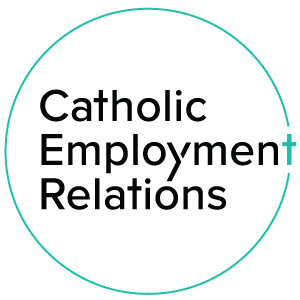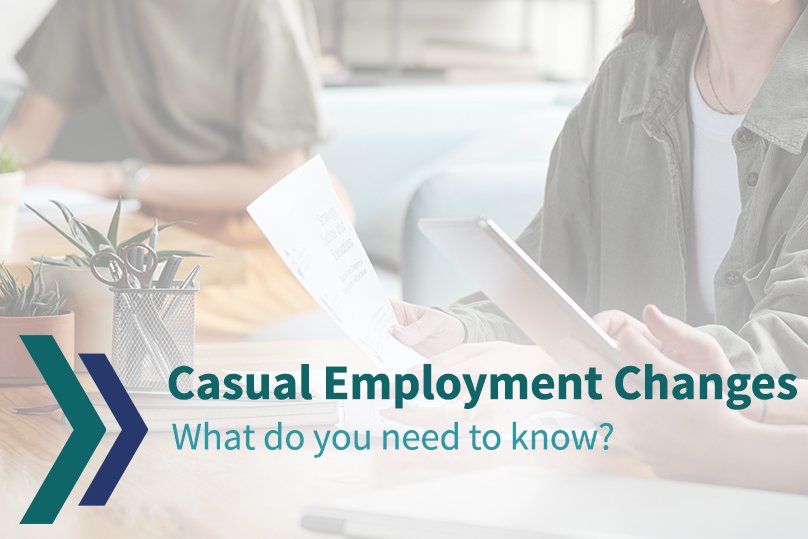
Stay up to date
Avoiding wage errors
The Fair Work Commission’s 2025 Annual Wage Review has increased the National Minimum Wage and modern award minimum rates by 3.5%. Employers must check the updated Modern Awards Pay Database, review pay rates and update payroll systems.
Are you ready for changes to Long Service Leave in the Community Services Sector?
NSW’s new Portable Long Service Leave scheme for the Community Services Sector starts 1 July 2025, allowing workers to accrue long service leave across different employers. Employers must register within one month of commencement, and employees can qualify for leave after 7 years of service in the sector.
Major Fair Work decision
Breaking down the new Fair Work Agreement for Early Childhood Educators
Changes to Independent Contractor Arrangements
From 26 August 2024, changes to the definition of “employee” will affect how independent contractors are classified. The key change reinstates the multi-factorial test, requiring employers to consider the overall substance of the working relationship, not just the contract terms. This applies to all current and future relationships.
Switching off - understanding the new right to disconnect
Starting August 26, 2024, employees in Australia will have a new legal right to disconnect from work-related contact outside of working hours. Under Section 333M of the Fair Work Act 2009, employees can refuse to respond to after-hours messages from employers. This change is aimed at improving work-life balance. Learn how these new rights will impact your organisation.
What should you know about workplace delegates’ rights in your organisation?
From 1 July 2024, all modern awards and enterprise agreements must include delegates' rights terms due to the Fair Work Legislation Amendment (Closing Loopholes) Act 2023. This change ensures workplace delegates have legislative rights to communicate with members and access workplace facilities.
Managing underperformance in the workplace
Managing underperformance in the workplace involves clear communication of responsibilities, accurate identification of performance issues, and supportive consultation with employees. Proactively managing underperformance fosters a culture of continuous improvement, enhancing productivity and organisational success.
Fair Work Commission announces 3.75% wage increase
Fair Work Commission announces 3.75% wage increase - National Minimum Wage and modern award minimum wages. To address gender undervaluation, including in the areas of early childhood education, disability home care, and social and community services.
Demystifying reasonable management action
Reasonable management action must be lawful, proportionate, procedurally fair, transparent and justified. It includes actions like performance management and disciplinary measures. Proper application of these principles helps reduce legal risks, such as claims for psychological injury and unfair dismissal and can lower staff turnover.
Navigating the Respect at Work Act changes
The Anti-Discrimination and Human Rights Legislation Amendment (Respect at Work) Act 2022 (Cth) (Respect at Work Act) was introduced to implement six recommendations from the Respect@Work Report
Casual Employment Changes
The landscape of casual employment in Australia has undergone significant changes following the High Court's landmark decision in Workpac Ltd v Rossato & Ors [2021] HCA 23. The recently enacted Closing Loopholes No 2 Act, introduces a legislative definition of casual employment effective from late August. Employers are advised to reassess their casual workforce within the six-month transition period to ensure compliance.
The right to disconnect
As remote work becomes increasingly prevalent, the boundaries between home and work life have become more fluid. With many employees finding themselves engaged in work tasks outside of traditional office hours, the need for clear guidelines regarding work-life balance has never been more pressing. Read more about what you need to know.
Dismissals - correct procedure is key
A recent decision by the Fair Work Commission highlights the significance of proper procedure even when there are valid grounds for dismissal. In a case involving allegations of harassment, the Commission found that the employer's procedural deficiencies outweighed the valid reasons for termination. Despite the employee's inappropriate behavior, the employer's failure to manage the conflict adequately and provide procedural fairness led to an unfair dismissal verdict.
Considering a flexible work request?
The responsibility lies with the employer to provide evidence and justification for their refusal of a flexible work request. Employers should keep this in mind during negotiations or when declining requests, aiming to find common ground whenever feasible to prevent unnecessary conflict.
The right to disconnect
The right to disconnect, introduced through the Fair Work Legislation Amendment (Closing Loopholes No.2) Bill 2023, grants Australian employees the entitlement to ignore work-related communication outside of working hours, except when deemed unreasonable. This amendment seeks to balance work-life boundaries by allowing employees to disengage after work hours, unless specific criteria for reasonableness are met.
Workplace flexibility in the Education sector
In the aftermath of the COVID-19 lockdowns, the education sector grapples with the concept of flexibility. The push for workplace flexibility aligns with the 2023 Senate Select Committee on Work and Care's recommendations, citing positive impacts on gender equality globally. However, the unique nature of the education sector underscores the necessity for comprehensive engagement with school communities to address diverse needs and ensure successful implementation of any significant changes.
December 6 deadline for contract changes
Fixed term contracts (including maximum term and temporary contracts), entered into on or after 6 December 2023, are limited to a maximum period of two years and/or one renewal, including previous periods of employment, unless limited exceptions apply.
Catholic Employment Relations to be integrated with Catholic Schools NSW to enhance services for Catholic employers
CER will soon be integrated into Catholic Schools NSW (CSNSW), joining the Legal and Risk team, and marking the end of the CER entity. The merger aims to better meet the employment law needs of Catholic organisations in education, social services and religious sectors.
Maximising employee potential
Learn how to effectively manage performance issues with employees, from distinguishing between underperformance and misconduct to implementing performance improvement plans for better results.
Demystifying reasonable additional hours
This article explores the concept of reasonable additional hours under the Fair Work Act, covering the rights of employees to refuse such hours and the corresponding compensation. It delves into considerations for determining reasonableness, payment obligations, and potential future changes regarding the "right to disconnect" outside of work hours.
Check out our resources

Contact us today
We look forward to helping you and your workplace. Get in touch today.





















